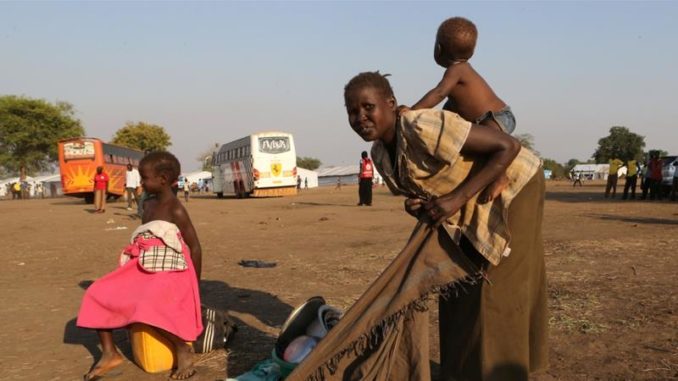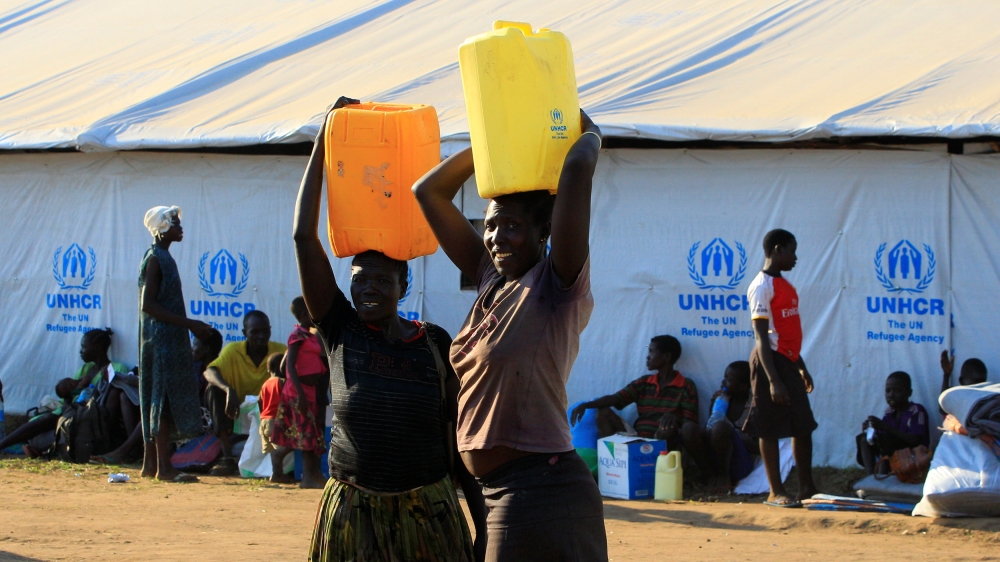
UNHCR appeals to government and rebels to find political solution to crisis as more than 1.5 million flee country.
The number of refugees who have fled South Sudan has crossed the 1.5 million mark, putting the country third after Syria and Afghanistan in terms of producing refugees, according to the UNHCR.
The UN refugee agency said on Friday that unless rival government and rebel forces agreed to talk, the ongoing flow of refugees within the country and abroad will continue this year.
More than 2.1 million people are internally displaced, the UNHCR said.
READ MORE: UN – South Sudan on brink of ethnic civil war
“With this large-scale displacement, South Sudan is now Africa’s largest refugee crisis and the world’s third after Syria and Afghanistan – with less attention and chronic levels of underfunding,” the agency said.
“We are appealing on all parties involved in the conflict for an urgent peaceful resolution of the crisis.”
William Spindler, UNHCR, said that in 2016 alone, an estimated 760,000 fled the country, including 500,000 in the second half of the year when the armed conflict – now in its fourth year – intensified.
More than 60 percent of the refugees are children, many arriving with “alarming levels of malnutrition” and suffering trauma, he said.
 |
| A split between Kiir and Machar escalated into a conflict in 2013 [James Akena/Reuters] |
A political split between President Salva Kiir, an ethnic Dinka, and his former deputy, Riek Machar, escalated into a military conflict in December 2013, leaving tens of thousands of people dead.
A unity government was formed in April 2016, but fighting erupted again in July, sending Machar and his forces into exile.
The UN’s top human rights agency has previously blamed both sides for ethnically targeted violations, including extrajudicial executions and sexual violence incidences in August 2015.
|
|
There are an estimated 13,500 UN peacekeeping forces in the country. But in January, the government rejected an additional 4,000 troops.
Recent refugees report of suffering inside the country, with many facing threats of kidnappings, rape, armed attacks and “acute food shortage”, the UNHCR said.
Currently, most South Sudan refugees are being hosted by Uganda, where some 698,000 have arrived.
Ethiopia ranks second with 342,000, while more than 305,000 are in Sudan.
In the Democratic Republic of Congo, Andreas Kirchhof, a UNHCR representative, told Al Jazeera aid workers faced difficulty in accessing the newly arrived refugees.
“There are security problems, which so far prevented us from reaching the areas. In border areas, there are several militia groups operating,” he said.
It was difficult to peg the number of new refugee arrivals, he said.
But of the refugees he had seen, Kirchhof described them as “looking exhausted after days of marching through the forest, as they avoid roads because they know that they might be killed”.
The UNHCR said it needs $782m in 2017 to support the refugees. In 2016, only 33 percent of the $649m fundraising goal was funded.
Source: Al Jazeera and news agencies
